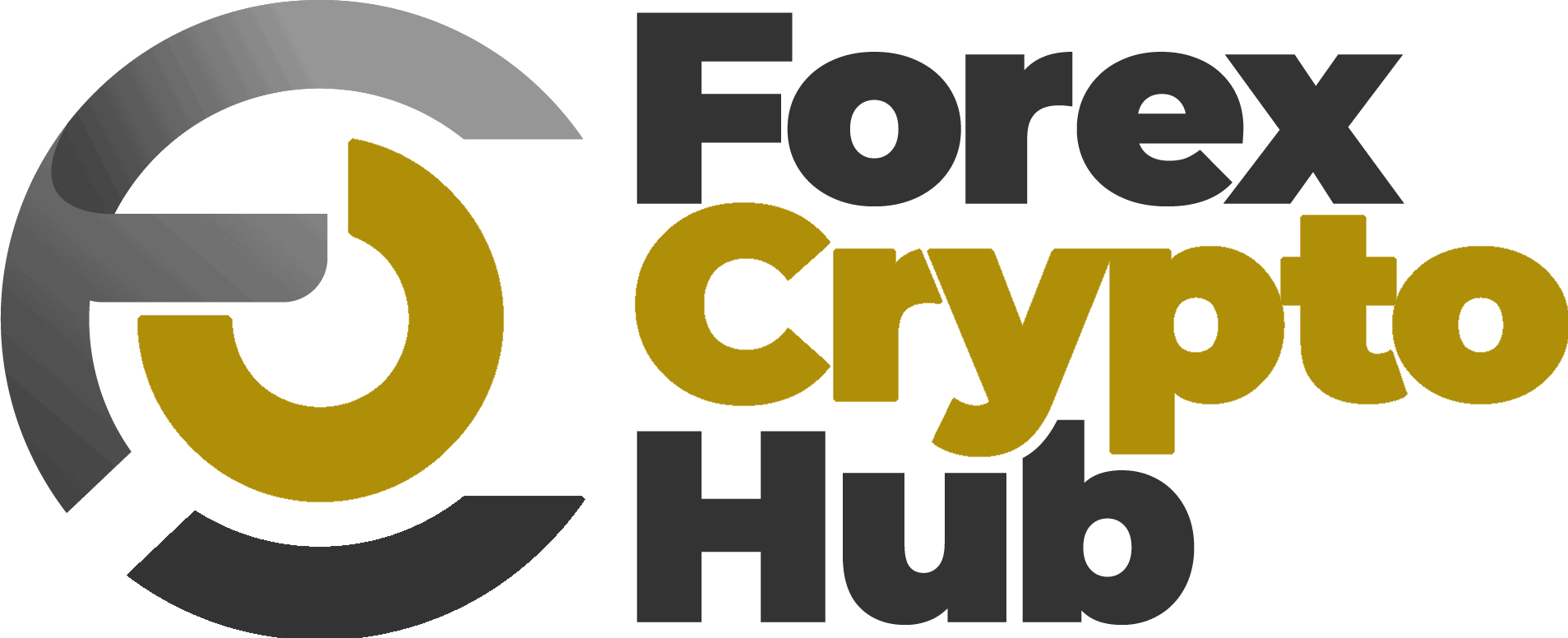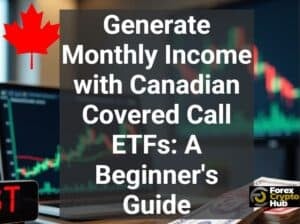Discover the Best Forex Broker in India – 2024 Edition

The world of forex trading has gained significant traction in India, with investors seeking opportunities in the global currency markets. Finding the best forex broker in India is crucial for traders looking to navigate this dynamic financial landscape. As the demand for forex trading platforms in India grows, it’s essential to identify reliable and regulated brokers that cater to the unique needs of Indian traders.
This guide aims to help investors discover the best forex trading broker in India for 2024. It will examine key factors such as regulatory compliance, account types, minimum deposits, and customer support. The article will also explore top forex trading apps in India, evaluate educational resources, and highlight legal forex brokers approved by Indian authorities. By the end, readers will have a comprehensive understanding of the forex trading scene in India and be better equipped to choose a broker that aligns with their trading goals.
List of Forex Brokers for India

Broker Name: FBS
| Broker Type | ECN |
| Regulations | IFSC, Cysec |
| Min Deposit | $1.00 |
| Account Base Currency | USD, EUR |
| Max Leverage | 3000:1 |
| Trading Platforms | Metatrader 4/5, Webtrader |

Broker Name: IC Markets
| Broker Type | ECN |
| Regulations | ASIC |
| Min Deposit | $200.00 |
| Account Base Currency | USD, AUD, EUR, GBP, CAD, JPY, NZD,CHF, SGD, HKD |
| Max Leverage | 500:1 |
| Trading Platforms | Metatrader 4/5, cTrader, Webtrader, API Trading, MAM / PAMM |

Broker Name: fpmarkets
| Broker Type | ECN, DMA |
| Regulations | ASIC, CySEC |
| Min Deposit | $100.00 USD |
| Account Base Currency | AUD, CAD, CHF, EUR, GBP, HKD, CNY, NZD, SGD, USD |
| Max Leverage | 1:500 |
| Trading Platforms | IRESS, Metatrader 4 and 5, MAM, PAMM |
The Regulatory Landscape for Forex Trading in India
The forex trading landscape in India is governed by a complex regulatory framework, primarily overseen by three key entities: the Reserve Bank of India (RBI), the Securities and Exchange Board of India (SEBI), and the Foreign Exchange Management Act (FEMA) 1999 [1]. This regulatory structure aims to ensure the stability of the Indian financial system and protect the interests of investors while managing foreign exchange transactions.
RBI Guidelines
The Reserve Bank of India plays a pivotal role in regulating forex trading in India. As the central financial institution, the RBI analyzes global political and economic situations to manage the country’s foreign exchange reserves [1]. It issues guidelines for authorized dealers, which include selected banks and financial organizations, to facilitate foreign exchange transactions for individuals and businesses [1].
One of the key restrictions imposed by the RBI is that Indian citizens are not permitted to trade in foreign exchange markets unless it’s for specific, authorized purposes such as travel, education, or business [1]. This limitation significantly narrows the scope of forex trading for Indian residents.
The RBI has also put in place strict regulations regarding the currency pairs that can be traded. According to SEBI restrictions, registered brokers are only allowed to offer trading in four currency pairs:
- USD/INR
- EUR/INR
- GBP/INR
- JPY/INR [1]
Trading in any other currency pairs is considered illegal in India [1]. This restriction is designed to maintain control over the country’s foreign exchange market and limit speculative trading.
SEBI Regulations
The Securities and Exchange Board of India (SEBI) is the primary regulatory body for the securities market in India. Established in 1988 and given statutory powers with the SEBI Act 1992, SEBI’s main objectives are to protect investor interests, promote market development, and ensure fair and transparent practices [2].
SEBI regulates forex trading through various rules and guidelines, including:
- The SEBI (Foreign Portfolio Investors) Regulations 2019, which govern the registration, eligibility, and investment limits for foreign portfolio investors [2].
- Requirements for forex brokers, such as maintaining a minimum net worth of Rs 25 crore and employing at least one qualified compliance officer [2].
To trade legally in foreign currency in India, investors must use a forex broker regulated by SEBI and authorized by the RBI [2]. These brokers, also known as SEBI-registered brokers or authorized dealers, must meet specific qualifications and adhere to regulatory compliance standards.
Offshore Broker Considerations
While the regulatory landscape in India is strict, it’s essential to understand the implications of using offshore brokers. The Foreign Exchange Management Act (FEMA) 1999 prohibits using unregulated platforms or binary trading options, which often involve high risk and volatility [1].
Choosing an RBI-approved forex broker is not only a legal requirement but also a prudent decision for Indian forex traders. Some benefits of trading with an RBI-approved broker include:
- Access to a limited but reliable range of currency pairs permitted by the RBI [3].
- Peace of mind knowing that the broker is authorized and regulated by Indian authorities [3].
- Avoidance of legal troubles and penalties that may arise from trading with unlicensed or offshore brokers [3].
- Better security and protection of funds, as brokers must comply with capital adequacy and customer service standards set by SEBI and RBI [3].
- Access to local payment methods and customer support within the Indian jurisdiction [3].
It’s crucial to note that the RBI maintains a list of 56 unauthorized forex brokers to protect investors and traders from fraudulent practices [3]. Engaging with these unauthorized brokers can lead to severe legal consequences and financial risks.
In conclusion, the regulatory landscape for forex trading in India is designed to protect investors and maintain the stability of the financial system. While it may seem restrictive, these regulations aim to create a safe and transparent environment for forex trading within the country’s economic framework.
Evaluating the Best Forex Brokers for Indian Traders
When selecting the best forex broker in India, traders need to consider several key factors to ensure a reliable and efficient trading experience. These factors include regulatory compliance, trading platforms, available currency pairs, and leverage options.
Trading Platforms Offered
The quality and features of the trading platform play a crucial role in a trader’s success. Forbes Advisor evaluates trading platforms based on their user interface, reliability, and advanced tools [4]. A user-friendly platform with robust features can significantly enhance the trading experience.
One standout option for Indian traders is Interactive Brokers, which is regulated by the Securities and Exchange Board of India (SEBI) and is a member of both the National Stock Exchange and Bombay Stock Exchange [5]. Interactive Brokers offers a modern trading platform suite with competitive fees and high-quality research and education resources. However, it’s important to note that due to regulatory restrictions, Interactive Brokers does not offer forex or CFDs in India [5].
Another top choice for Indian traders is IG, which has earned the highest Trust Score in a database of over 62 forex brokers [5]. Although not directly regulated by the RBI or SEBI for forex trading in India, IG provides an award-winning platform with a wide range of currency pairs and complex order types for advanced trading strategies. IG also excels in catering to beginner forex traders, offering a rich educational experience [5].
Currency Pairs Available
The availability of diverse currency pairs is essential for traders to implement various strategies and take advantage of market opportunities. In India, SEBI restrictions limit registered brokers to offering only four currency pairs:
- USD/INR
- EUR/INR
- GBP/INR
- JPY/INR [1]
Trading in any other currency pairs is considered illegal in India [1]. This restriction is designed to maintain control over the country’s foreign exchange market and limit speculative trading.
For traders looking for a broader range of options, some international brokers offer more extensive selections. For instance, IG provides access to a wide variety of currency pairs, including major, minor, and exotic pairs [5]. However, it’s crucial to ensure that any forex trading activities comply with Indian regulations.
Leverage and Margin Requirements
Leverage is a fundamental aspect of forex trading, allowing traders to control larger market positions with a smaller capital investment. In India, the Securities and Exchange Board of India (SEBI) regulates leverage for retail forex traders:
- For major currency pairs involving the US Dollar, Euro, Japanese Yen, Pound Sterling, and Swiss Franc, the maximum leverage allowed is 1:50 [6].
- For minor currency pairs, the maximum leverage is limited to 1:20 [6].
These leverage limits are designed to protect retail traders from excessive risk. For example, with a leverage of 1:50, a trader can control a position worth ₹50,00,000 with a margin of ₹1,00,000 for major currency pairs [6].
It’s important to note that while higher leverage can amplify profits, it also magnifies potential losses. Traders should use leverage judiciously and implement proper risk management strategies. Some key considerations when using leverage include:
- Stay within SEBI guidelines: Adhere to the prescribed leverage limits of 1:50 for major pairs and 1:20 for minor pairs [6].
- Risk management: Limit risk to 1-2% of your account on a single trade when using leverage [6].
- Use stop-loss orders: Implement stop-loss orders on all leveraged positions to limit downside risk [6].
- Monitor margin levels: Ensure adequate margin to sustain open leveraged positions [6].
By carefully evaluating these factors – trading platforms, available currency pairs, and leverage options – Indian traders can make informed decisions when choosing a forex broker that aligns with their trading goals and complies with local regulations.
Account Types and Minimum Deposits
When selecting a forex broker in India, traders should consider the various account types and minimum deposit requirements. Different brokers offer a range of options to cater to diverse trading needs and preferences.
Standard Accounts
Standard accounts are the most common type offered by forex brokers. These accounts typically feature commission-free trading but may have slightly higher spreads compared to other account types. For example, Eightcap offers standard accounts with spreads starting from 1 pip [7]. The minimum deposit for standard accounts varies among brokers, with some requiring as little as INR 4188.29, as seen with FXCM [7].
ECN Accounts
Electronic Communication Network (ECN) accounts provide traders with direct access to the interbank forex market. These accounts often feature tighter spreads and faster execution speeds. ECN brokers typically charge a commission per trade, separate from the spread [8]. For instance, Eightcap’s Raw accounts offer spreads starting from zero pips with a INR 586.36 round-turn commission [7].
Key features of ECN accounts include:
- Variable spreads, often starting from zero pips
- Faster execution times
- Access to deeper liquidity pools
- More transparent pricing
ECN trading platforms like cTrader are specifically designed for ECN forex trading, offering advanced features and direct market access [8].
Islamic Accounts
Islamic accounts, also known as swap-free accounts, are designed to comply with Sharia law, which prohibits the earning or paying of interest (Riba) [9]. These accounts cater to Muslim traders who wish to engage in forex trading without violating their religious principles.
Key characteristics of Islamic accounts include:
- No overnight swap fees or interest charges
- Fixed fees or commissions may be applied instead of swaps
- Compliance with Sharia law principles
Some brokers, like XM, offer Islamic accounts with the same trading conditions as standard accounts, minus the swap fees [10]. Others, like Octa, provide Islamic account options across multiple trading platforms, including MT4, MT5, and their proprietary platform [10].
When choosing an Islamic account, traders should consider the following factors:
- Regulatory compliance of the broker
- Available trading instruments (some assets may be restricted)
- Any additional fees or commissions that replace swap charges
- Duration of swap-free trading periods (some brokers may limit this)
It’s important to note that not all brokers offer Islamic accounts, and those that do may have specific requirements for opening such an account, such as providing proof of faith [9].
Minimum Deposits
Minimum deposit requirements vary significantly among forex brokers. Here’s a comparison of minimum deposits for some popular brokers:
Broker | Minimum Deposit |
|---|---|
easyMarkets | INR 8376.57 |
Eightcap | INR 8376.57 |
FXCM | INR 4188.29 |
Iron FX | INR 8376.57 |
Capital.com | INR 1675.31 |
Traders should consider their budget and trading goals when choosing an account type and broker. While lower minimum deposits may seem attractive, it’s essential to ensure that the chosen account type and broker align with one’s trading strategy and risk tolerance.
Educational Resources and Research Tools
Forex brokers in India offer a variety of educational resources and research tools to help traders make informed decisions and improve their trading skills. These resources are essential for both novice and experienced traders to stay updated with market trends and enhance their trading strategies.
Webinars and Tutorials
Many forex brokers provide comprehensive educational materials to help traders understand the fundamentals of forex trading. These resources often include webinars and tutorials that cover a wide range of topics, from basic concepts to advanced trading strategies. For example, some brokers offer courses that explain key terms such as leverage, margin, and lot sizes [11].
Traders can learn about different types of orders, including market orders, limit orders, and stop orders. These tutorials often provide practical examples to help traders understand how to use these orders effectively in their trading strategies [11]. Additionally, many brokers offer guidance on risk management techniques, such as setting appropriate stop-loss orders to limit potential losses.
Economic Calendars
Economic calendars are crucial tools for forex traders, providing information about upcoming economic events and data releases that can impact currency markets. These calendars typically include details such as:
- Event name
- Date and time of release
- Country or region the data is from
- Previous and expected values
- Potential impact on various asset classes [12]
Popular economic calendars are offered by financial news outlets like Bloomberg, Reuters, and CNBC, as well as specialized websites such as FXStreet and Investing.com [12]. The FXStreet Economic Calendar, for instance, covers over 1,000 events from 42 countries and offers features like:
- Automated refresh when data is released
- Countdown to release time
- Customizable local time display
- Sound notifications
- Mobile-friendly interface
- Historical graphs
- Related news and reports [13]
By using economic calendars, traders can anticipate market volatility and make more informed decisions about their trades.
Technical Analysis Tools
Technical analysis tools are essential for traders to identify patterns, trends, and potential trading opportunities in the forex market. Many brokers integrate these tools into their trading platforms or offer them as standalone applications. Some popular technical analysis tools include:
- Moving Averages: One of the oldest and most widely used tools for identifying trend direction [14].
- Moving Average Convergence Divergence (MACD): A tool that combines trend-following and momentum indicators [14].
- Relative Strength Index (RSI): A momentum indicator that measures the magnitude of recent price changes to evaluate overbought or oversold conditions [14].
- Bollinger Bands: A tool that helps assess price volatility and identify potential buy or sell signals [14].
- Fibonacci Retracement: An indicator that provides exclusive data by connecting two points that the trader considers vital for market research [14].
Many brokers offer customizable charting packages that include a wide range of technical indicators. For example, Interactive Brokers’ Trader Workstation (TWS) platform contains over 120 technical analysis tools [15]. Similarly, TradeStation, which grew out of a technical analysis software development firm, offers advanced charting capabilities based on tick data and includes automated technical analysis features [15].
By utilizing these educational resources and research tools, forex traders in India can enhance their understanding of the market, develop more effective trading strategies, and make better-informed decisions in their trading activities.
Customer Support and Local Presence
Support Channels
When evaluating forex brokers in India, the quality and accessibility of customer support play a crucial role in ensuring a smooth trading experience. Many top brokers offer reliable 24/5 customer support to address traders’ concerns promptly. For instance, AvaTrade provides multilingual customer support with fast response times [16]. Similarly, Pepperstone offers award-winning customer support accessible via telephone, email, or live chat, with impressive response times of less than 5 minutes during testing [16].
Exness stands out by offering 24/7 multilingual customer service, ensuring that traders can get assistance at any time, regardless of their trading hours [17]. This round-the-clock support is particularly beneficial for traders who operate across different time zones or engage in after-hours trading.
Languages Available
In a diverse country like India, the availability of support in multiple languages is a significant advantage. FXTM, for example, offers customer support in over 30 languages, making it a popular choice among global traders, including those in India [16]. This multilingual support ensures that traders can communicate effectively with the broker’s support team, reducing misunderstandings and enhancing the overall trading experience.
Exness also provides multilingual customer service, catering to the linguistic diversity of the Indian market [17]. This approach helps traders feel more comfortable and confident when seeking assistance, as they can express their concerns in their preferred language.
Indian Office Locations
While many forex brokers operate globally, having a local presence in India can be advantageous for Indian traders. It provides a sense of security and easier access to support when needed. However, specific information about Indian office locations for the mentioned brokers is not provided in the given factual keypoints.
It’s worth noting that Interactive Brokers, which is regulated by the Securities and Exchange Board of India (SEBI), has a registered office in Mumbai. Their disclosure text states, “Registered Office: 502/A, Times Square, Andheri Kurla Road, Andheri East, Mumbai 400059, India. Tel: +91-22-61289888 / Fax: +91-22-61289898” [5]. This local presence can be reassuring for Indian traders looking for a broker with a physical presence in the country.
When choosing a forex broker, Indian traders should consider the following factors related to customer support and local presence:
- Availability of 24/5 or 24/7 support
- Multiple communication channels (phone, email, live chat)
- Support in languages commonly spoken in India
- Response times and quality of assistance
- Presence of local offices or representatives in India
It’s important to note that while local presence can be beneficial, the quality of the overall trading experience, including factors like execution speed and educational resources, should also be considered. For example, FXTM offers trade execution under 0.2 seconds, averaging 0.1 seconds, and provides independently audited performance statistics [17]. Similarly, Pepperstone boasts impressive execution speeds averaging around 30ms, which is ideal for day trading [16].
By carefully evaluating these aspects of customer support and local presence, Indian traders can choose a forex broker that not only meets their trading needs but also provides reliable assistance when required.
Conclusion
Navigating the forex trading landscape in India requires careful consideration of regulatory compliance, reliable brokers, and effective trading strategies. This guide has shed light on the key aspects of forex trading in India, including the regulatory framework, top brokers, account types, and essential tools for successful trading. It has highlighted the importance of choosing SEBI-regulated brokers and adhering to RBI guidelines to ensure a safe and legal trading experience.
To succeed in forex trading, Indian traders must leverage educational resources, stay informed about market trends, and utilize advanced research tools. The importance of reliable customer support and the benefits of brokers with a local presence have also been emphasized. By carefully evaluating these factors and aligning them with individual trading goals, Indian investors can make informed decisions and potentially thrive in the dynamic world of forex trading.
FAQs
Currently, there are no frequently asked questions available related to the article “Discover the Best Forex Broker in India – 2024 Edition.” Please refer to the main content of the article for detailed information on the regulatory landscape, broker evaluations, account types, educational resources, and customer support specific to forex trading in India.
References
[1] – https://www.forbes.com/advisor/in/investing/is-forex-trading-legal-in-india/
[2] – https://www.motilaloswal.com/blog-details/are-forex-trading-platforms-illegal-in-india/21711
[3] – https://select.finology.in/articles/broker/rbi-approved-forex-broker-in-india
[4] – https://www.forbes.com/advisor/in/investing/best-forex-trading-app/
[5] – https://www.forexbrokers.com/guides/india
[6] – https://www.shareindia.com/knowledge-center/currency-trading/what-is-leverage-in-forex
[7] – https://www.bestbrokers.com/forex-brokers/best-forex-brokers-india/
[8] – https://www.cmroncologia.com/3-greatest-ecn-brokers-in-india-in-2024-trade-on/
[9] – https://www.dailyforex.com/forex-brokers/best-forex-brokers/islamic-account
[10] – https://fxscouts.com/in/forex-brokers/islamic-accounts/
[11] – https://www.tradingwithrayner.com/course/the-ultimate-forex-trading-webinar-for-beginners/
[12] – https://www.youtube.com/playlist?list=PLvCRl2gl0o8fnQZP-prYs72RXPJxBVYsb
[13] – https://www.fxstreet.com/economic-calendar
[14] – https://www.gopocket.in/blog/technical-analysis-tools
[15] – https://www.investopedia.com/articles/active-trading/121014/best-technical-analysis-trading-software.asp
[16] – https://www.daytrading.com/in/forex/brokers
[17] – https://www.dailyforex.com/forex-brokers/best-forex-brokers/india
About This Article
Author: Mark Prosz
Sources of information and credits for this post include:




